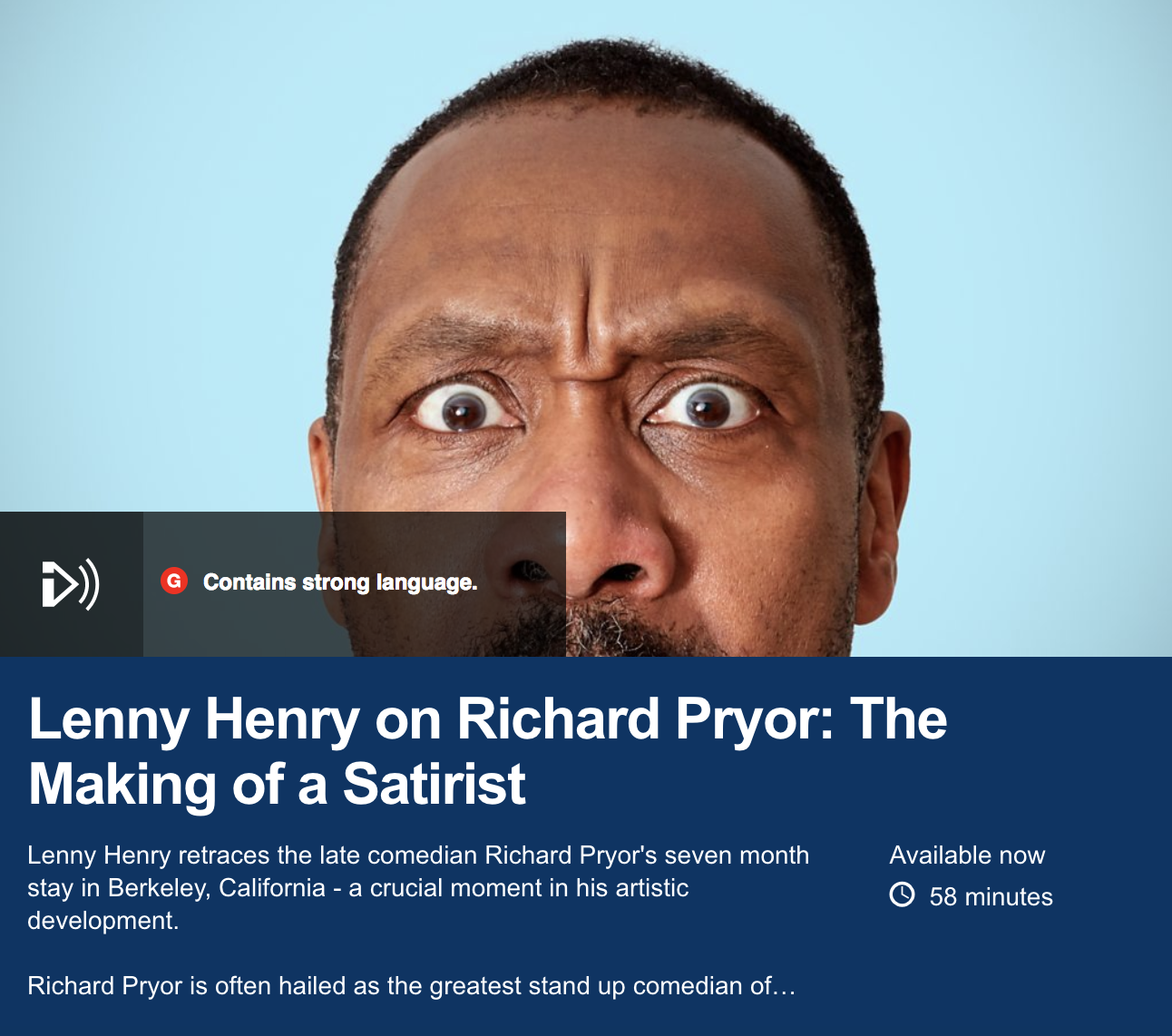Lenny Henry on Richard Pryor: The Making of a Satirist
Seriously…
click for audio

Source: BBC
Source: BBC
Lenny Henry retraces the late comedian Richard Pryor’s seven month stay in Berkeley, California – a crucial moment in his artistic development.
Richard Pryor is often hailed as the greatest stand up comedian of all time. For Lenny Henry, it was Pryor’s fearless act in the mid 70s and 80s that inspired him as a young comic. And he remains Lenny’s comedy hero to this day.
But the Richard Pryor that Lenny knows and loves had a very different act when he first started out in 1960s New York. A self-confessed Bill Cosby clone, charming audiences with his ‘white bread’ humour.
It’s the stuff of legend how Pryor’s biting social satires, salty language, and character-driven routines like The Wino and The Junkie came about after he threw away a lucrative job in Las Vegas and vowed to reinvent himself. But, for Lenny, the key to Pryor’s artistic transformation lies in his short stay in Berkeley, California. When he arrived in February 1971, revolution was in the air. A hub for American counterculture, there were pitched battles in the streets between activists and the police. Berkeley was also home to the Black Panthers and a burgeoning black arts movement.
Pryor made friends with a local radio producer who invited him on to the local station KPFA, gave him a recorder so he could brainstorm new material, and taped several of his performances around town. With these little-heard tapes, Lenny pieces Pryor’s life together during his self-imposed exile. Pryor immersed himself in black history and culture, hanging out with intellectuals like Ishmael Reed and Cecil Brown. For the first time, Pryor was taken seriously as an artist and we get a fascinating glimpse him recording free verse poetry. We also hear Pryor experimenting with edgier material at local clubs. For example, we hear blistering attacks on police brutality and his response to the 1971 Attica prison rebellion – which sound remarkably modern even today.

